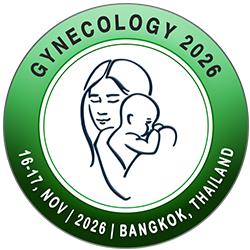This session will provide an in-depth look at the latest advancements in the fields of gynecology and obstetrics, focusing on cutting-edge treatment approaches, innovations in diagnostic techniques, and strategies for improving patient outcomes. Join experts and practitioners to discuss the evolving landscape of care in women’s health, from prevention to complex surgical interventions.
This session will focus on the specialized field of Pediatric and Adolescent Gynecology, examining emerging diagnostic techniques, treatment options, and the psychosocial aspects of care. It provides a platform to discuss the unique challenges and innovations in managing gynecologic issues in young girls and teenagers, with an emphasis on early detection, prevention, and holistic care.
This session will explore the intricate processes of the Menstrual Cycle and Ovulation, shedding light on their physiological mechanisms, common disorders, and advancements in fertility treatments. Experts will share the latest research on hormonal regulation, ovulation disorders, and emerging therapies aimed at enhancing fertility and reproductive health.
This session will delve into the cutting-edge advancements in Reproductive Endocrinology and Infertility treatment, focusing on the latest diagnostic techniques, emerging therapies, and multidisciplinary approaches to managing infertility. Join experts as they explore hormonal regulation, fertility preservation, and novel interventions that are transforming reproductive care.
This session will explore the latest advancements in Contraception and Family Planning, focusing on innovative methods, emerging technologies, and evolving societal attitudes toward reproductive health. Experts will discuss new contraceptive options, strategies for improving access, and the role of personalized care in empowering individuals to make informed family planning choices.
This session will explore the latest innovations in Gynecologic Oncology, focusing on cutting-edge diagnostic techniques, personalized therapies, and collaborative care models. Experts will discuss advancements in early detection, treatment options, and ongoing research to improve outcomes for women affected by gynecologic cancers.
This session bridges the gap between diagnostic advancements in Gynecologic Pathology and the evolving field of aesthetic gynecology. It explores diagnostic precision, therapeutic interventions, and innovations aimed at enhancing both clinical outcomes and quality of life for patients.
This session focuses on the latest advancements and multidisciplinary approaches in the field of urogynecology, highlighting innovative treatments, diagnostic breakthroughs, and strategies for improving the quality of life for patients with pelvic floor disorders. It serves as a platform for collaboration and inspiration to address these complex conditions.
This session celebrates the vital roles of Midwives and Obstetrical Nurses in maternal and neonatal care. It highlights evidence-based practices, innovative approaches, and interdisciplinary strategies to ensure safe childbirth, promote maternal health, and improve neonatal outcomes.
This session highlights groundbreaking advancements in Maternal-Fetal Medicine, focusing on cutting-edge diagnostics, therapies, and interdisciplinary approaches to optimize outcomes for both mothers and their babies. It serves as a hub for sharing knowledge and fostering collaborations to advance care in this critical field.
This session focuses on the cutting-edge technologies and innovations revolutionizing prenatal diagnostics. It explores the latest breakthroughs in early detection, genetic screening, and personalized approaches to optimize maternal and fetal health outcomes. Join us to uncover the future of prenatal care and diagnostics.
This session delves into the complex challenges surrounding preterm birth, highlighting the latest advancements in prediction, prevention, and management strategies. It provides a platform for sharing research, innovative approaches, and global perspectives to improve outcomes for preterm infants and their families.
This session explores the multifaceted aspects of spontaneous abortion and miscarriage, focusing on the latest research, diagnostic advancements, prevention strategies, and emotional support systems. It serves as a collaborative platform to discuss innovative approaches to reducing pregnancy loss and improving care for affected individuals and families.
This session focuses on the latest advancements in understanding, diagnosing, and managing sexually transmitted diseases (STDs). It offers a platform to explore innovative prevention strategies, cutting-edge research, and global health approaches to reducing the burden of STDs. Join us in this vital discussion to shape the future of sexual and reproductive health.
This session explores the transformative advancements in minimally invasive gynecologic surgery (MIGS), focusing on innovative techniques, technologies, and their impact on patient care. Join us to discuss the latest research, surgical approaches, and collaborative strategies that are reshaping the future of gynecologic surgery.
This session delves into the various gynecological disorders that affect women across different stages of life. Focusing on innovative diagnostic methods, advancements in treatment strategies, and patient care, we will explore the latest research and practical approaches in managing common and complex gynecological conditions.
Scientific Highlights
- Gynecology and Obstetrics
- Paediatric and Adolescent Gynecology
- Menstrual cycle and Ovulation
- Reproductive Endocrinology and Infertility
- Contraception and Family Planning
- Gynecologic Oncology
- Gynecology Pathology and Aesthetics Gynecology
- Urogynecology and Pelvic Floor Disorders
- Midwifery and Obstetrical Nursing
- Maternal Fetal Medicine Innovations
- Advancements in Prenatal Diagnostics
- Preterm Birth and Prevention
- Spontaneous Abortion and Miscarriage
- Sexually Transmitted Diseases
- Minimally Invasive Gynecologic Surgery
- Gynecological Disorders
- Menopause and Hormone Replacement Therapy
- Global Women’s Health Initiatives
- Ethical and Legal Issues in Obstetrics and Gynecology
- Innovations and Future Directions in Gynecology and Obstetrics


